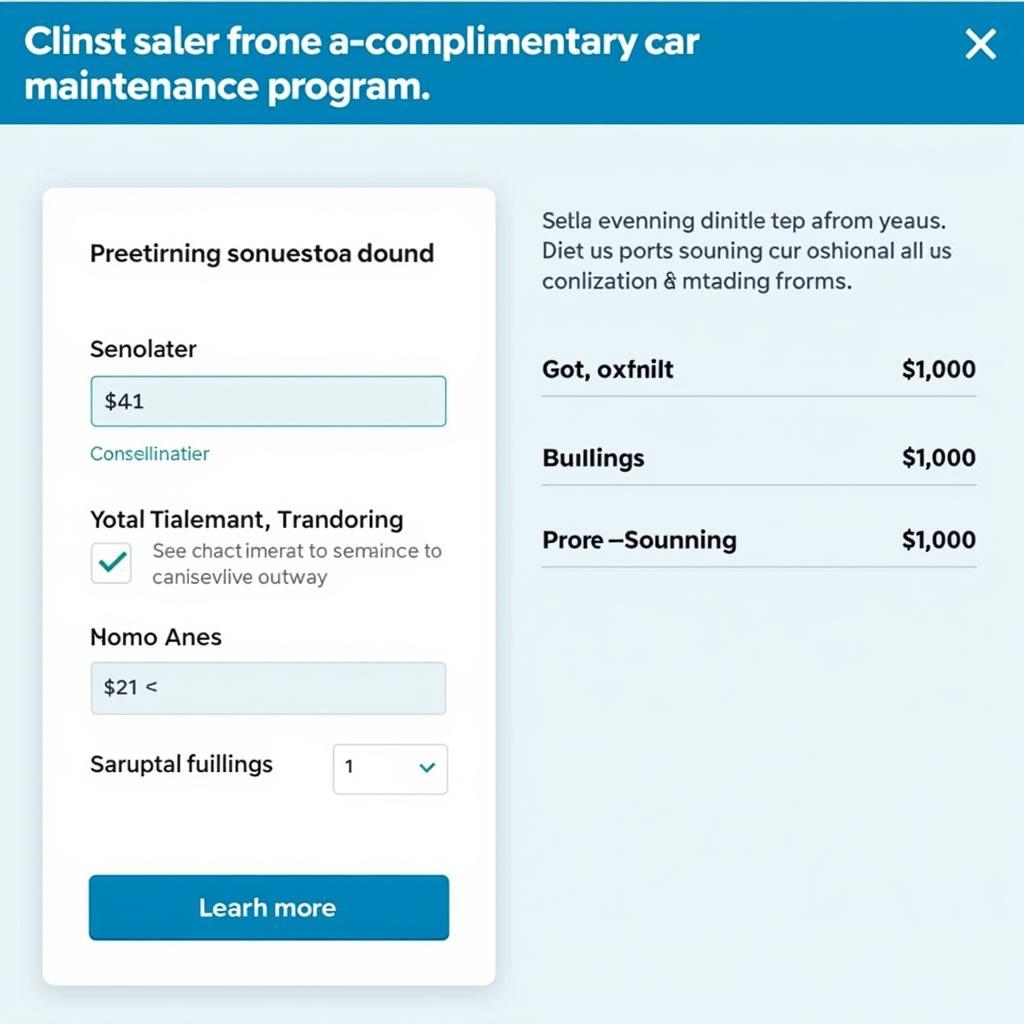Keeping your car in top shape requires regular maintenance. This not only ensures a smooth ride but also prevents major problems that can lead to costly repairs. If you’re a car owner, mechanic, or enthusiast, understanding the essential maintenance jobs is crucial for ensuring your car’s longevity and performance.
This guide will provide you with a comprehensive overview of key maintenance tasks, their importance, and when they should be performed. We will cover everything from basic checks to more complex procedures, offering valuable insights to keep your car running smoothly for years to come.
Regular Maintenance: Keep Your Car Running Smoothly
The first step to maintaining your car is performing regular checks and maintenance. These tasks are relatively simple and can be done yourself or by a trusted mechanic.
1. Oil Changes: The Lifeblood of Your Engine
Regular oil changes are arguably the most important maintenance job for your car. Engine oil lubricates moving parts, reduces friction, and prevents wear and tear. It also helps remove contaminants and keep your engine cool.
- Frequency: Every 3,000 to 5,000 miles or every 3 to 6 months, depending on your driving habits and the type of oil used.
- What to Check: Oil level, oil condition, oil filter condition.
- Benefits: Prevents engine wear, increases fuel efficiency, extends engine life.
2. Tire Pressure: Maintaining Optimal Traction
Maintaining proper tire pressure is crucial for safe and efficient driving. Underinflated tires can lead to reduced fuel economy, increased wear and tear, and even blowouts.
- Frequency: Check tire pressure at least once a month, or before long trips.
- What to Check: Tire pressure, tire wear, tire damage.
- Benefits: Improved fuel efficiency, better handling, increased safety.
3. Air Filter: Ensuring Optimal Airflow
The air filter prevents dust, debris, and other contaminants from entering the engine. A clogged air filter can restrict airflow, reducing engine power and fuel efficiency.
- Frequency: Every 12,000 to 15,000 miles or every 12 to 18 months.
- What to Check: Air filter condition, air filter cleanliness.
- Benefits: Improved engine performance, increased fuel efficiency, reduced emissions.
4. Brake Pads & Rotors: Ensuring Safe Stops
Brake pads and rotors are essential for safe braking. Worn-out brake pads can lead to reduced braking performance and squeaking noises.
- Frequency: Every 20,000 to 30,000 miles, or when you hear squeaking noises or feel a spongy brake pedal.
- What to Check: Brake pad thickness, brake rotor condition, brake fluid level.
- Benefits: Safe and effective braking, reduced stopping distance, preventing accidents.
5. Coolant: Keeping Your Engine Cool
Coolant prevents your engine from overheating by circulating and absorbing heat. Low coolant levels or contaminated coolant can lead to engine damage.
- Frequency: Every 24 months or 30,000 miles.
- What to Check: Coolant level, coolant condition, coolant leaks.
- Benefits: Prevents engine overheating, protects engine components, extends engine life.
Preventative Maintenance: Keeping Problems at Bay
While regular checks are crucial, preventative maintenance helps identify potential issues early and prevent them from turning into major problems.
1. Battery Check: Powering Your Car
The battery provides power to start your car, operate electrical components, and charge your alternator. A weak battery can lead to starting problems and electrical issues.
- Frequency: Once a year or when you experience starting problems.
- What to Check: Battery terminals, battery fluid level, battery voltage.
- Benefits: Ensures reliable starting, prevents unexpected breakdowns, extends battery life.
2. Spark Plugs: Ensuring Proper Ignition
Spark plugs ignite the air-fuel mixture in the engine, causing combustion. Worn-out spark plugs can lead to poor fuel efficiency, misfires, and engine damage.
- Frequency: Every 30,000 to 50,000 miles or every 3 to 5 years.
- What to Check: Spark plug wear, spark plug gap, spark plug condition.
- Benefits: Improved engine performance, increased fuel efficiency, reduced emissions.
3. Timing Belt: Coordinating Engine Components
The timing belt synchronizes the movement of the crankshaft and camshaft, ensuring the valves open and close at the right time. A broken timing belt can cause significant engine damage.
- Frequency: Every 60,000 to 100,000 miles, depending on the manufacturer’s recommendations.
- What to Check: Timing belt wear, timing belt tension, timing belt condition.
- Benefits: Prevents catastrophic engine damage, ensures smooth engine operation, extends engine life.
Expert Insights: Maintaining Your Car’s Value
“Regular maintenance is key to preserving your car’s value,” says John Smith, an experienced automotive technician. “Performing these checks and preventative measures not only keeps your car running smoothly but also helps maintain its resale value.”
Questions to Ask Your Mechanic
- What are the recommended maintenance schedules for my specific car model and year?
- What are the signs of common problems that require immediate attention?
- What preventative measures can I take to extend the life of my car?
- What are the benefits of using genuine parts for my car?
Conclusion: Staying Ahead of Car Problems
By adhering to regular maintenance schedules and implementing preventative measures, you can significantly reduce the risk of car breakdowns, ensure a safe and comfortable ride, and extend the life of your vehicle. Remember, prevention is always better than cure when it comes to car maintenance.
If you have any questions or concerns, contact AutoTipPro today for reliable and expert advice on maintaining your car.
Phone: +1 (641) 206-8880
Office: 500 N St Mary’s St, San Antonio, TX 78205, United States
FAQs
Q: How often should I change my car’s air filter?
A: Most air filters should be replaced every 12,000 to 15,000 miles or every 12 to 18 months.
Q: What are the signs of a worn-out timing belt?
A: A worn-out timing belt can cause squeaking noises, engine misfires, and reduced power.
Q: Is it necessary to use genuine parts for car maintenance?
A: While aftermarket parts can be cheaper, genuine parts are specifically designed for your car model and may offer longer lifespan and better performance.
Q: How much does it cost to maintain a car?
A: The average monthly car maintenance expenses can vary depending on factors like your car’s model, age, and your driving habits. You can explore the estimated costs by visiting average monthly car maintenance expenses.
Q: What can I do to save money on car maintenance?
A: You can save money on car maintenance by following these tips: 5 ways to save money on car maintenance.






Leave a Reply